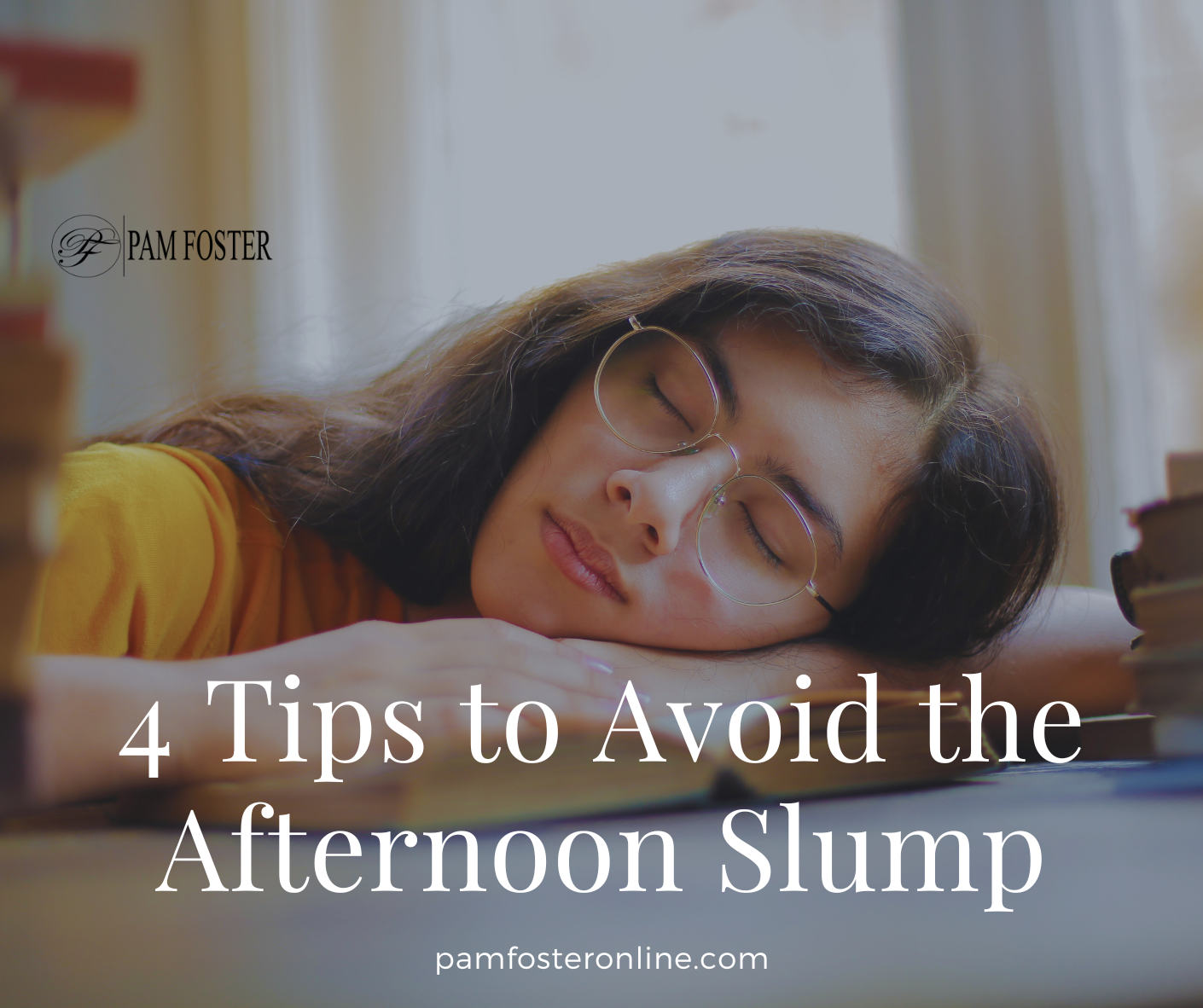We’ve all experienced it at one time or another: the afternoon slump!
Imagine yourself on a typical day, finishing lunch and gearing up for a productive afternoon. Just as you start to tackle the next item on your list, you’re hit with a sudden wave of drowsiness that leaves you nodding off despite your best efforts to stay focused.
If you can relate to this experience, you know an “afternoon crash” can greatly impact your day. The afternoon crash affects elite athletes, resulting in slower race times in midafternoon compared to performances at other times.
Researchers generally call it “the post-lunch dip,” when many people experience low energy, drowsiness, and reduced performance in the midafternoon hours. What you eat for lunch can ease or worsen your sleepiness, but research has shown that lunch is not the primary cause of the post-lunch dip.
In part, biology is to blame. Low energy and drowsiness in the midafternoon are part of the body’s normal circadian rhythm. Research examining physiological measures related to sleep, such as patterns of electrical activity in the brain, shows a peak in the midafternoon hours. These measures show that body systems prepare for sleep during the post-lunch hours of the day, often causing you to feel like you need a nap.
Biology is an underlying element in afternoon sleepiness, but research has shown that lifestyle and nutrition choices play an important role, too. These choices might distinguish between a productive afternoon or nodding off at your desk.
These four science-supported tips can help you conquer the afternoon crash.
-
Start with Sleep
It goes without saying that too little sleep at night will result in feeling tired during the day. Unfortunately, we may not always prioritize sleep, harming our productivity and well-being. The first step to overcoming your afternoon slump is to get the recommended seven to nine hours of sleep each night.
-
Choose a Better Lunch
Eating a large fatty or starchy meal is a common trigger that worsens afternoon drowsiness. Research suggests that the high-calorie, fatty meal you might find at a drive-thru restaurant can significantly increase afternoon sleepiness and impair the performance of everyday tasks such as driving. Other research indicates that a fatty or starchy lunch can negatively impact mood and cognitive performance. Aim for a healthier choice by focusing on balanced nutrition and reasonable portions to fuel your afternoon instead of feeling like you need a nap.
-
Use Caffeine Strategically
Caffeine can help to boost energy levels, alertness, and focus when used moderately and strategically. However, excessive caffeine use, particularly early in the day, may worsen afternoon crashes. The typical half-life of caffeine in the body means that the effects of a big morning coffee jolt fade around the same time as midafternoon sleepiness is at its peak. Drinking even more coffee during the afternoon may not be helpful, either, since consuming too much caffeine late in the day can interfere with sleep at night.
Aiming for moderate caffeine use spread evenly across the morning and early afternoon hours can be helpful. Seeking other options to boost energy and focus in addition to strategic caffeine consumption can also be helpful. Something as simple as a nourishing snack or as elevated as a nootropic supplement could be the right option to make your afternoon more productive.
-
Get Moving
If your day is spent in front of a computer screen, you will likely spend a lot of time sitting. Prolonged periods of sitting can be a factor that contributes to afternoon sleepiness. Research suggests that the more breaks you take from sitting, the less tired you may feel in the afternoon. Break up periods of sitting with short, light-intensity walking for three minutes every half hour. Studies show significantly less fatigue later in the day than when seated for long periods.
While the body’s natural circadian rhythms are part of why many of us feel low on energy in the midafternoon hours, diet and lifestyle choices also have a big influence.
To recap, these are all effective strategies to help you conquer your afternoon slump.
- Getting adequate sleep at night
- Choose more healthful lunch options
- Moderate your caffeine use
- Break up your day with movement

